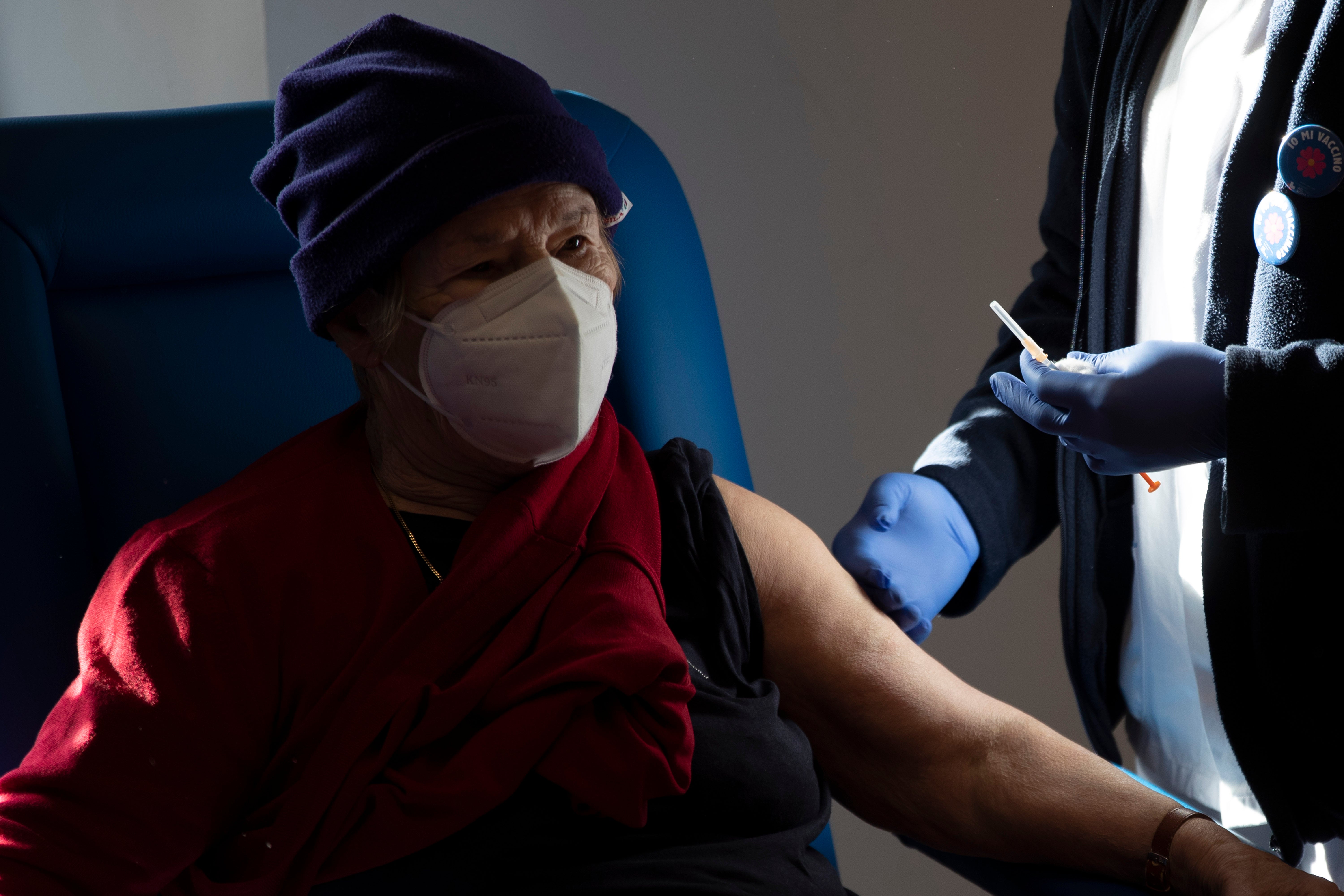Italy teachers balk at AstraZeneca vaccine plans
Italy’s main teachers' union is balking at plans for educators under age 55 to receive the AstraZeneca vaccine rather than jabs it believes provide better protection

Your support helps us to tell the story
From reproductive rights to climate change to Big Tech, The Independent is on the ground when the story is developing. Whether it's investigating the financials of Elon Musk's pro-Trump PAC or producing our latest documentary, 'The A Word', which shines a light on the American women fighting for reproductive rights, we know how important it is to parse out the facts from the messaging.
At such a critical moment in US history, we need reporters on the ground. Your donation allows us to keep sending journalists to speak to both sides of the story.
The Independent is trusted by Americans across the entire political spectrum. And unlike many other quality news outlets, we choose not to lock Americans out of our reporting and analysis with paywalls. We believe quality journalism should be available to everyone, paid for by those who can afford it.
Your support makes all the difference.Italy’s main teachers' union is balking at plans for educators under age 55 to receive the AstraZeneca vaccine rather than jabs it believes provide better protection, evidence that lobbying groups are vying to get specific shots as the virus and its variants spread across Europe.
The CISL School union said in a statement Monday that it wanted a meeting with Italy’s government scientific committee. It complained that it hadn’t been consulted about the decision to start up the vaccine drive for teachers ahead of schedule, with some of the first 250,000 AstraZeneca doses that arrived over the weekend.
The Italian government rejiggered its vaccination plans last week after Pfizer-BioNTech and Moderna reduced vaccine deliveries and Italy’s pharmaceutical agency gave “preferential use” for AstraZeneca shots for people aged 18 to 55. The government is now directing its Pfizer and Moderna shots to inoculate people over age 80 while designating the AstraZeneca jabs for younger, at-risk workers.
Interim analysis from late-stage human trials showed the AstraZeneca vaccine was 70.4% effective at preventing symptomatic COVID-19 after two doses. Pfizer and Moderna reported preliminary results from late-stage trials showing their vaccines were almost 95% effective.
Over the weekend, South Africa suspended plans to inoculate its front-line health care workers with AstraZeneca after a small clinical trial suggested that it isn’t effective in preventing mild to moderate illness from the variant dominant in the country.
To date, Italy has identified one person who tested positive with the variant from South Africa who arrived on a flight from the continent, though it has had more cases of the variants identified in Britain and Brazil. But on Monday, the Austrian government issued a warning against travel to its Tyrol province, which borders northern Italy, after 293 infections of the variant identified in South Africa were confirmed there.
Northern Italy has been the hardest-hit part of the country ever since the first locally transmitted case was confirmed on Feb. 21 in Lombardy and became Europe's one-time epicenter. While infections nationwide have held steady for several weeks — around 8,000 new confirmed cases were reported Monday and 307 new deaths — northern regions continue to see the highest numbers of infections and deaths. With more than 90,000 dead, Italy has the second-highest confirmed COVID-19 death toll in Europe after Britain.
The union said school workers were questioning whether to accept the AstraZeneca vaccine given its “claimed lower vaccination coverage compared to the more effective Pfizer and Moderna vaccines.”
Italy's virus czar, Domenico Arcuri, has defended the decision to direct the AstraZeneca vaccines to younger workers, saying the dual aim of Italy's campaign is to reduce mortality overall among the elderly who are most at risk of fatal complications, and reduce the spread of the virus among younger people.
“We have a new weapon that allows us to amplify the categories to vaccinate," Arcuri told reporters Friday.
Originally, Italy’s national vaccine plan prioritized health care workers and residents of nursing homes with the first doses of vaccines that arrived, followed by people over age 80.
But the new “preferential use” designation for AstraZeneca shots means a parallel campaign begins this week for under-55 teachers, law enforcement personnel, armed forces, prisoners and prison officials as well as essential workers and residents of communities.
To date, Italy has administered more than 2.5 million doses. On Monday in Rome the first doses for people over age 80 and not living in nursing homes got underway at local hospitals.
“I have seven grandchildren waiting for a hug,” a pleased Abramo Abrusca said as he got his Pfizer shot.